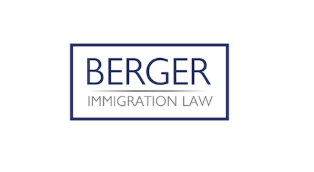
Protecting Your Hospitality Business from ICE Audits and Raids
Operating a hotel or restaurant involves balancing multiple responsibilities, but one of the most pressing concerns today is compliance with federal immigration laws. With heightened scrutiny by U.S. Immigration and Customs Enforcement (ICE), hospitality business owners must understand their legal obligations, potential consequences of violations, and the proactive steps necessary to mitigate risks.
Understanding ICE Enforcement: Raids vs. I-9 Audits
ICE primarily enforces immigration laws through two types of actions:
- Raids are unannounced visits where ICE agents inspect workplaces, interview employees, and verify work authorization on-site. They typically require a judicial warrant to enter non-public areas, but not public spaces. Raids often involve coordination among multiple law enforcement agencies based on targeted investigations or tips, making them more disruptive to operations and employee morale.
- I-9 audits - ICE issues a Notice of Inspection requiring businesses to submit Form I-9 records within three days. Unlike raids, audits allow for preparation time, though inadequate documentation can still result in penalties.
Legal Consequences of Employing Unauthorized Workers
Employing workers without a valid immigration status or improperly managing Form I-9 records can expose your business to substantial penalties.
Recent penalty adjustments have significantly increased fines. Employers found knowingly hiring unauthorized workers face civil fines starting around $600 and reaching up to nearly $23,000 per worker for repeated violations. Additionally, serious paperwork violations, such as failing to properly complete or retain I-9 forms, can result in fines of up to nearly $2,900 per violation.
While criminal charges are less common, they may be pursued in severe cases involving intentional or repeated non-compliance. Beyond fines, raids or audits can disrupt operations, damage reputation, and strain employee relations.
What to Do if ICE Visits Your Business
If ICE officers arrive, taking the proper steps can significantly influence the outcome:
- Request and verify identification and warrants. Politely ask for official identification from ICE agents and confirm the type of warrant they have. Only a judicial warrant, signed by a judge, authorizes entry into private or employee-only areas.
- Limit access without a judicial warrant. ICE cannot legally enter private offices or employee-only areas without a judicial warrant or employer consent. Always remain professional and do not physically obstruct or argue with officers.
- Immediately contact your immigration attorney. Clearly inform agents that your policy requires legal representation during inspections. Your attorney can guide the interaction, ensuring your rights are protected and communications remain compliant.
- Educate employees. Employees have the right to remain silent and seek legal counsel. Advise your staff accordingly, but never instruct them to hide, evade, or mislead agents.
- Document everything. Carefully record all interactions, noting agent identities, actions taken, and documentation reviewed. Retain any relevant security footage, as this can be crucial evidence later.
Read more about employer rights and responsibilities here.
Proactive Measures to Prevent Violations
Avoiding problems with ICE begins long before agents arrive:
- Regular I-9 audits - Conduct internal audits annually, ensuring all Form I-9s are correctly completed and retained for current and former employees as required by law. Correct errors promptly and transparently, documenting changes clearly.
- Check the rules for E-Verify - In states like Georgia, it is mandated for employers with 11 or more employees. If appropriate for your business, this federal system provides an additional layer of verification to help maintain compliance and demonstrate good-faith efforts.
- Employee and management training - Equip your staff, particularly management and HR personnel, with clear procedures for ICE visits, emphasizing lawful responses and the importance of record-keeping.
- Develop a written ICE response plan - Prepare an action plan outlining roles, responsibilities, communication strategies, and a checklist of steps during an ICE inspection. This ensures calm, orderly responses under pressure.
- Organize and secure documentation - Maintain organized employment records for quick retrieval during audits. Proper organization demonstrates compliance and reduces disruptions during inspections.
Proactively addressing immigration compliance safeguards your business and ensures continuity and stability in your daily operations. For more comprehensive guidance on preparing for ICE visits, we encourage you to explore this helpful article: A Manager's Guide to ICE Visits: Preparation and Response
How Berger Immigration Law Can Help Your Business
Navigating immigration compliance is complex, but you don’t have to do it alone. At Berger Immigration Law, a specialized firm and active member of the American Immigration Lawyers Association, we provide expert guidance tailored specifically to hotel and restaurant owners. From proactive compliance audits and I-9 training to immediate response plans for ICE inspections, our expertise ensures your business stays protected and prepared in an ever-changing immigration landscape.
For personalized assistance, contact us at admin@bergerimmigrationlaw.com to schedule a confidential consultation or training session tailored to your business.
This blog is intended solely for general informational purposes and does not constitute legal advice. Immigration laws and enforcement policies frequently change, and the information may not reflect current legal developments. For specific guidance tailored to your business’s individual circumstances, please consult us directly.
